See a Newly Discovered Deep-Sea Octopus and Its Adorable Alien Children
Images from an ROV reveal the bizarre cephalopods and their habitat.
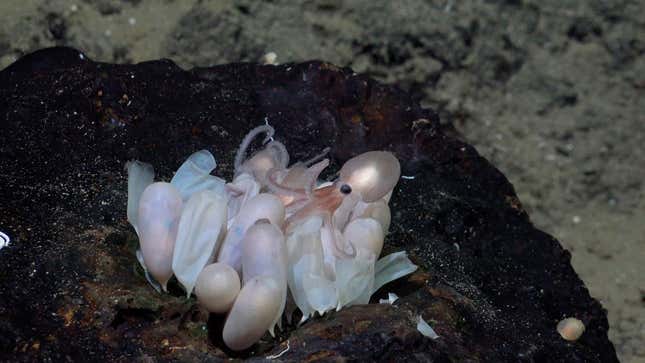
A team of scientists working off the coast of Costa Rica have identified four previously unknown deep-sea octopus species in the vicinity of hydrothermal springs on the ocean floor. They also discovered two octopus nurseries affiliated with the springs, both of which belong to the newly christened dorado octopus. The researchers determined that the dorado octopus is a member of the deep-sea genus Muusoctopus.
Three of the new species are still being described by the team; the only species imaged and named in a recent Schmidt Ocean Institute release is the dorado octopus. The animal’s undersea habitat was captured in photos and video by the ROV SuBastian. Click through to see some of the otherworldly scenes playing out at the bottom of the sea.
A brooding ball pit
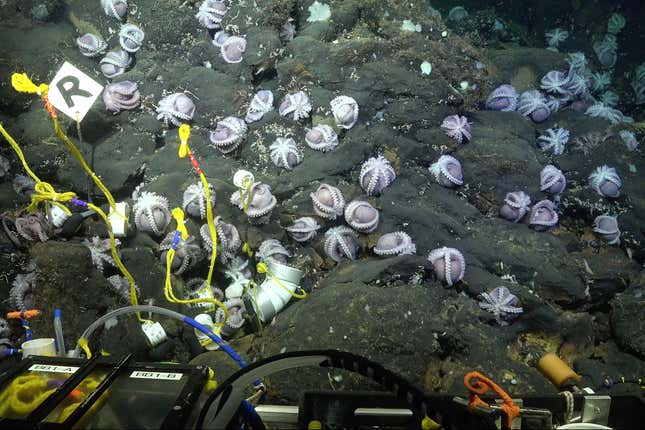
A mother octopus’ work isn’t done until the bitter end. When they brood, the octopuses do not eat, and the animals die around the time their eggs hatch. The self-sacrifice yields the next generation of octopuses. Here, field of dorado octopuses. The researchers believe the octopuses face their tentacles outward to ward off predators looking for an easy meal.
A glass octopus sighting
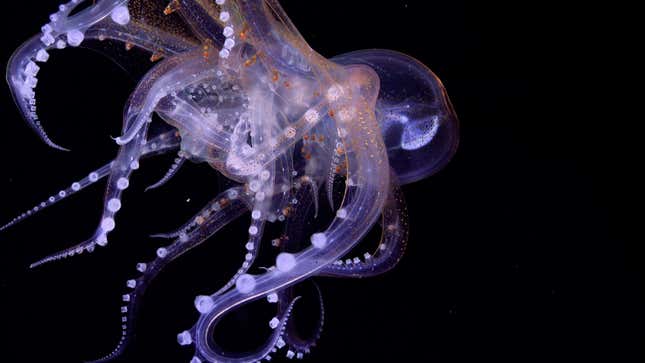
A glass octopus (V. richardi) was spotted on the recent expidition, which surprised the researchers: the shot appears to include two octopuses. According to the Schmidt Ocean Institute, the team isn’t sure whether one individual was feeding on another or the two cephalopods were copulating. The translucent octopus is not one of the newly discovered species.
A “Skate Park”
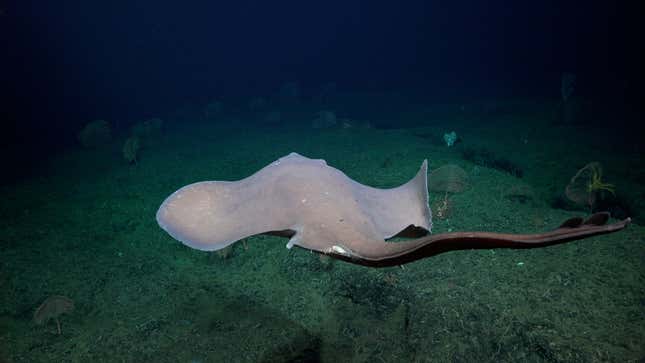
Get it? The researchers found a skate nursery near the octopuses, in a 30-nautical-mile region that encompasses three hydrothermal springs.
Brooding octopuses
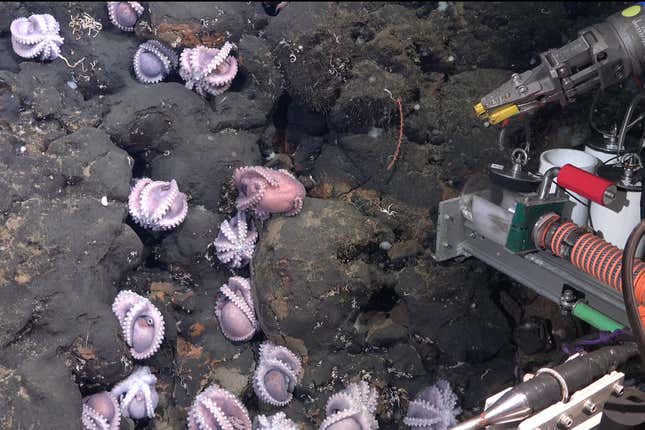
No, they’re not being surly. These mother dorado octopuses are preparing for their eggs to hatch.
A giant phantom jelly
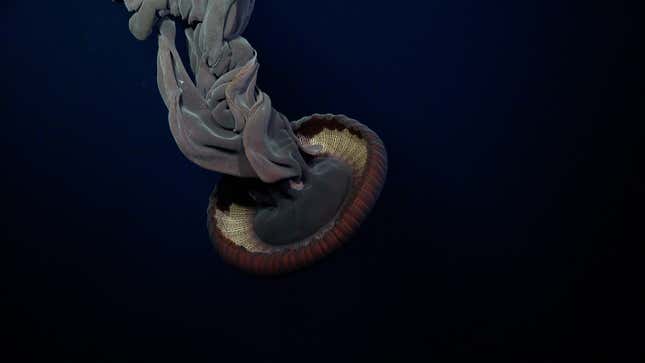
Good eye—this is not an octopus. It’s a giant phantom jelly (S. gigantea), with a bell that can stretch 3.3 feet across and four 33-foot arms that look like smoke billowing out from the bell.
A brooding mother
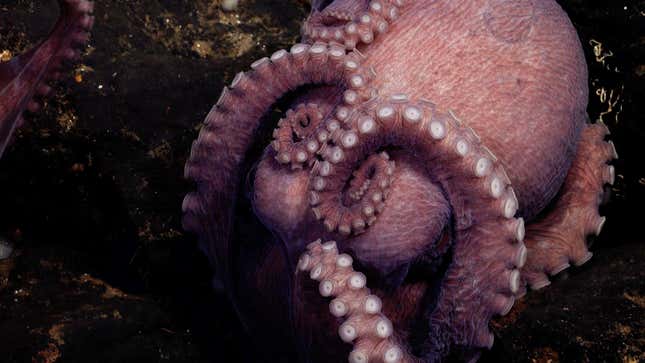
This intimate view of a female dorado octopus shows the detail of her suckered tentacles, curled up around her mantle.
A hatchling
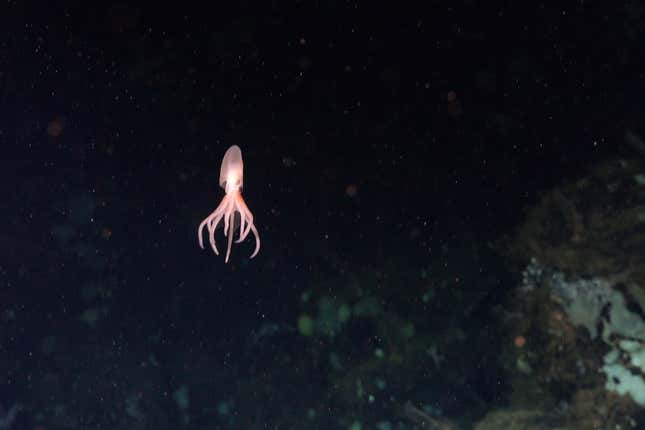
This octopus hatchling is taking one of its first swims in the depths off Costa Rica. The animal’s egg was on El Dorado Hill, an undersea mount for which the dorado octopus species is named.
A hatchling and its soon-to-be brethren
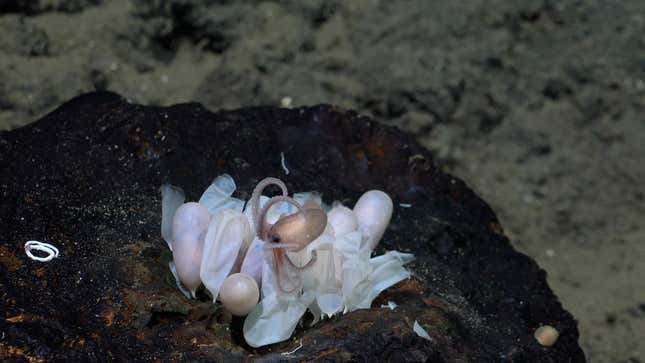
A remarkable shot of an octopus hatchling that just exited its egg, part of a clutch fastened to a rock on the Tengosed Seamount off Costa Rica.
Shrimp on a carcass
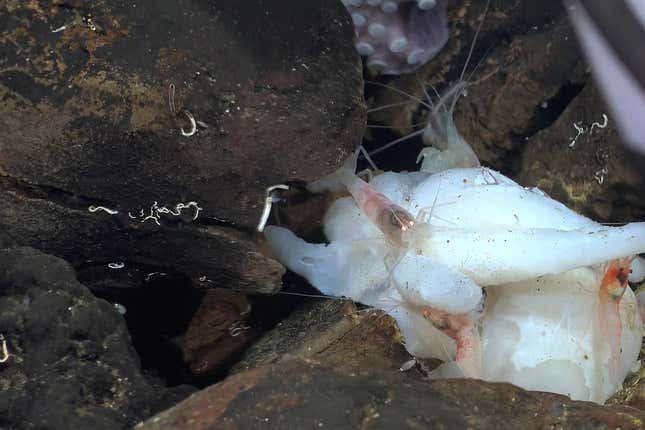
In this macabre shot, a handful of shrimp feed on the dead body of a female octopus who (evidently) laid her eggs, stopped eating, and died.
No comments:
Post a Comment